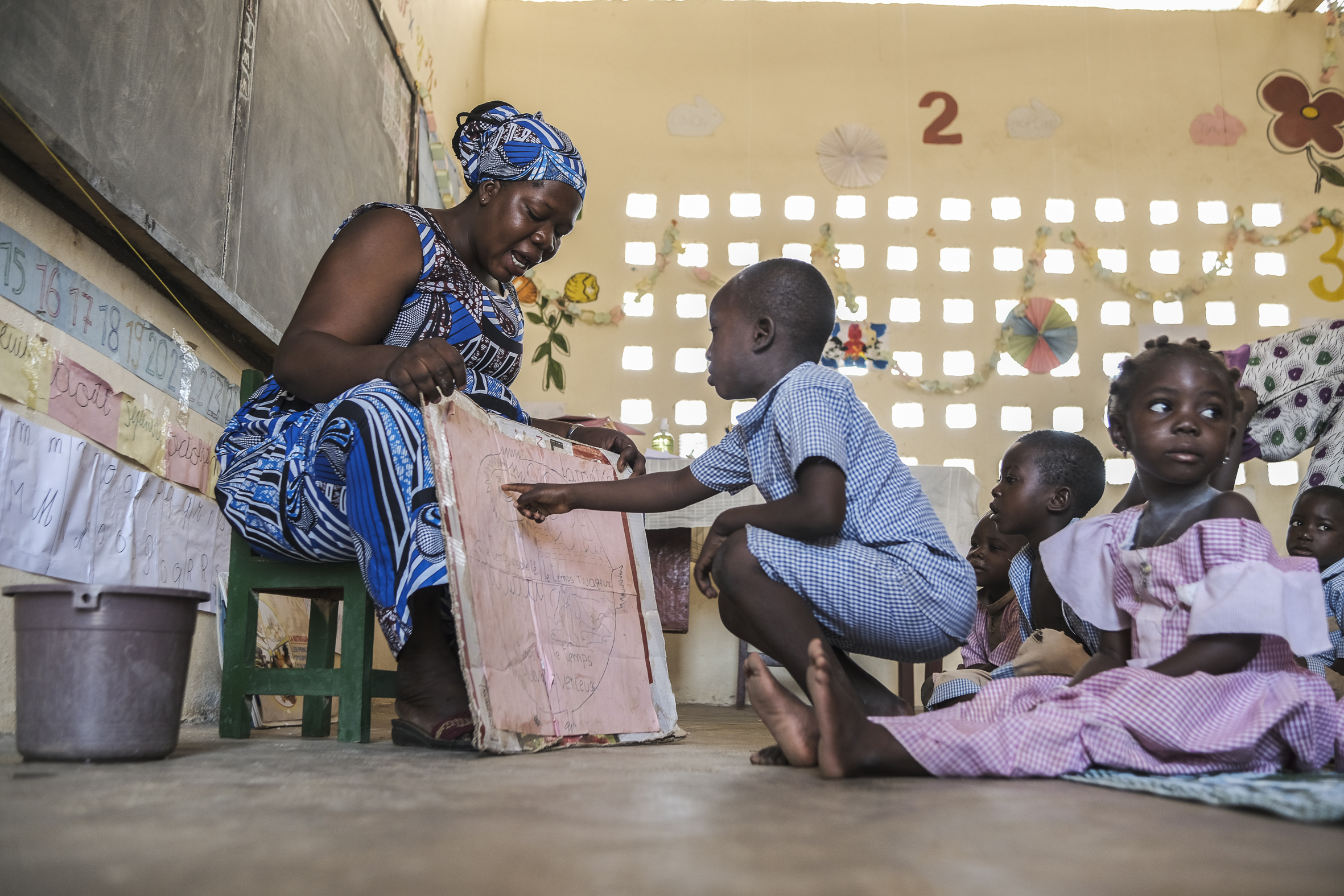
In many communities across Africa, children learn in multilingual educational environments. The language of instruction may not be their mother tongue, making it difficult for them to learn effectively. The KIX project, Strengthening bilingual and multilingual learning systems in Francophone Africa, seeks to provide policymakers with tools and approaches for determining the language(s) in which to teach children and when. The project’s findings confirm that implementing a bilingual/multilingual education system targeting children as they start school is imperative. African education systems should be designed in a manner that takes local culture and language into context.
Specifically, this project has found that children learn better when their education begins in a language they use and understand. Recognizing that French is often not a dominant language for children, they found that learning outcomes are improved when students transition to French-language education only after they have developed around 50% master of decoding skills – the ability to recognize basic sounds that make up words and understand them in context – in their familiar language. The project also found that parents and teachers across the three countries in their study – Cote d’Ivoire, Senegal, and the Democratic Republic of Congo – support the use of both local languages and French in schools.
These findings present important considerations for policymakers in Francophone Africa. Recommendations include the following:
- Map data on local languages to develop policies and corresponding curricula that begins instruction in languages students use and understand, transitioning to French once students reach 50% mastery of decoding skills in those languages.
- Train teachers in multilingual-sensitive, assessment-informed pedagogy, and create opportunities for teachers to experiment with and learn from bilingual transfer assessment practices.
- Provide targeted support for parents and community members to help children learn to read. This support should be tailored to non-literate parents, should include transferrable skills that parents can help provide in any language, and should incorporate an understanding of the value of local languages.
